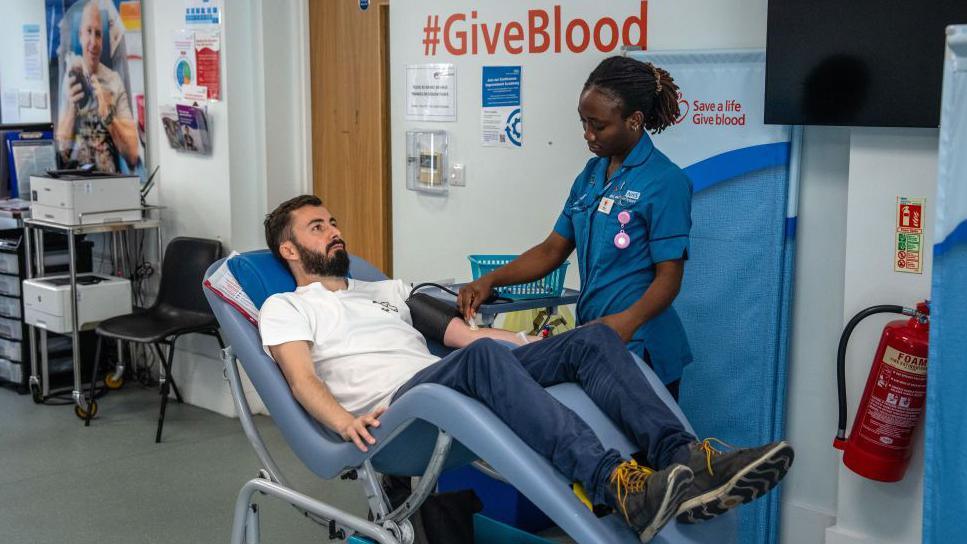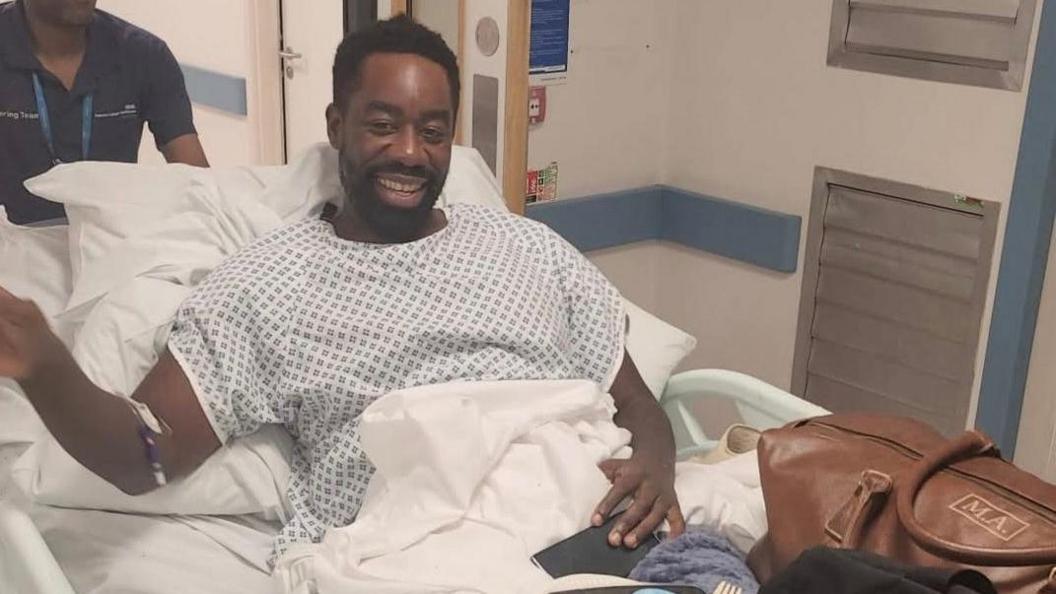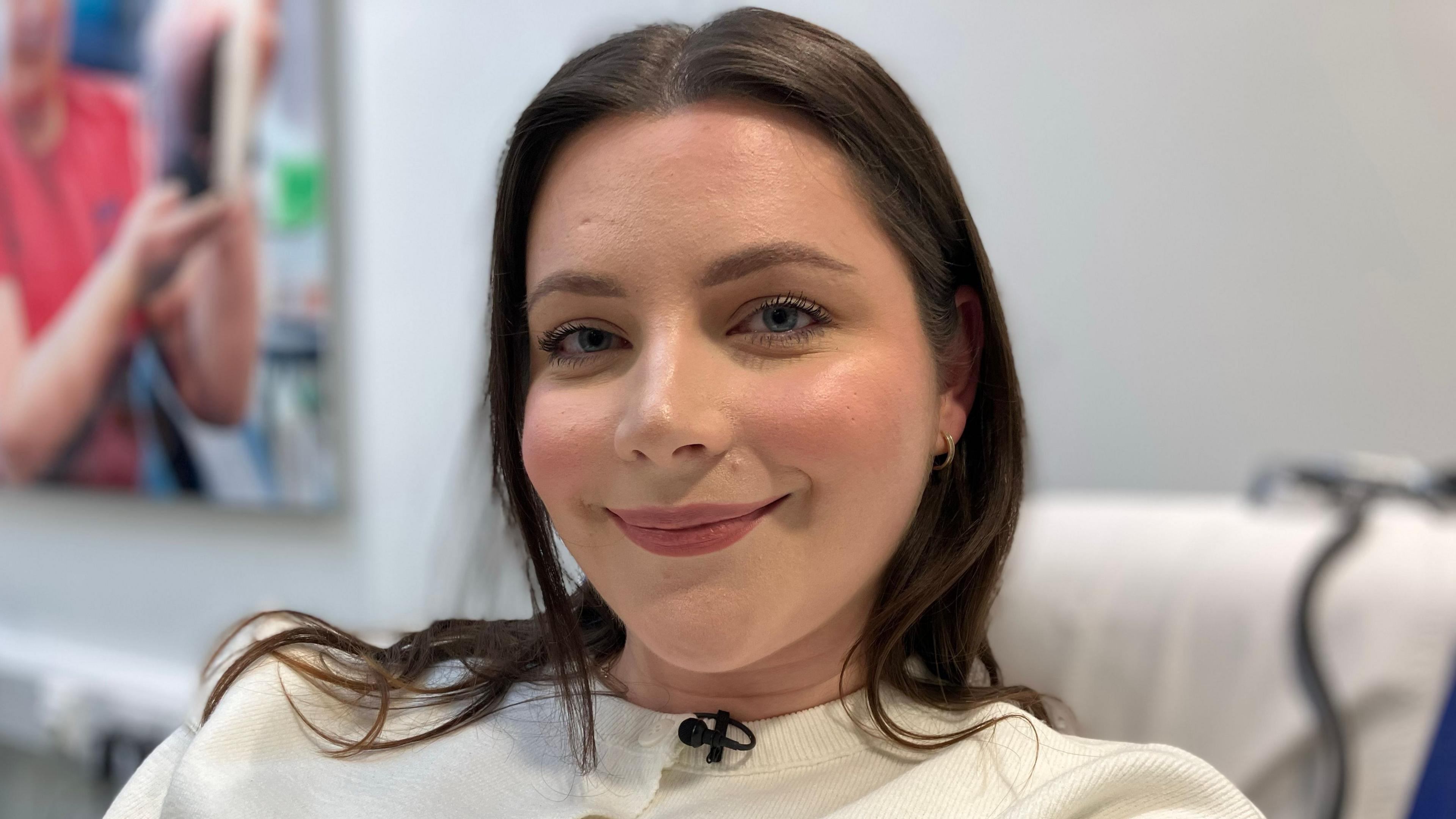Would-be drivers to be encouraged to donate blood

- Published
People applying for a driving licence will be encouraged to donate blood as part of a campaign to boost numbers of donors.
Officials estimate the message - a link to register as a blood donor in emails following driving licence applications - will be seen by millions of people each year.
By encouraging driving licence applicants, the NHS hopes to make a direct appeal to young people, as more than half of regular blood donors are over the age of 45.
Tim Moss, chief executive of the Driver and Vehicle Licensing Agency (DVLA), said his organisation is "in a unique position to help raise awareness" as it handles millions of driving licence applications each year.
People can donate blood from the age of 17 and register from the age of 16.
The new scheme is jointly rolled out by the DVLA and NHS Blood and Transplant (NHSBT), the body that oversees England's blood donation system.
"At 17 you can both learn to drive and start giving blood," said Altaf Kazi, assistant partnerships director for NHSBT.
"So this new partnership with the DVLA is a fantastic opportunity for the NHS to reach more younger people who have a lifetime of donating ahead of them," Kazi added.
The two bodies hope to repeat an earlier success where the driving licence application has included an option to join the organ donor register since 1994.
Around 70% of people signed up to the register did so through this prompt, according to NHSBT.
Hospitals across England need 5,000 blood donations every day to treat patients with a wide variety of conditions, including traumatic injury, childbirth, blood disorders and cancer treatments, it added.
Earlier this year, the NHS warned that it continued to face a "challenging" blood shortage, as it called for 200,000 new donors to come forward in order to maintain a safe and reliable supply.
Concern over blood stocks prompted the health service to issue an "amber alert" last year, meaning supplies were running low enough to have an impact on patient treatment.
Supplies have remained low ever since, with officials warning there is a "critical" need for more donors who have O negative blood, which can be given to the majority of patients.
Related topics
- Published9 June

- Published3 August

- Published2 June
